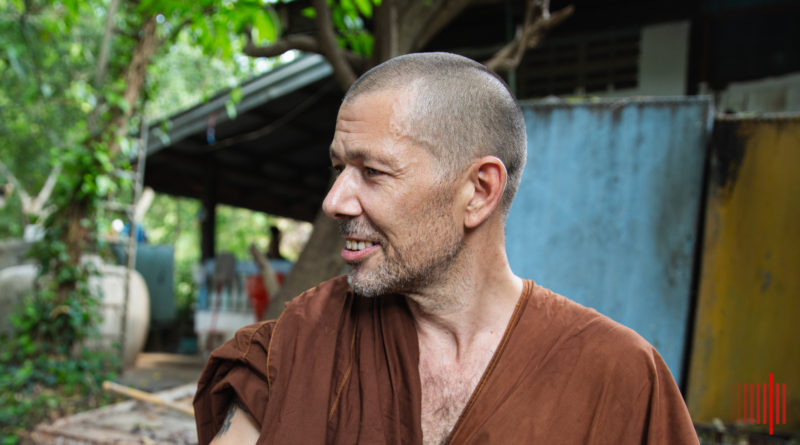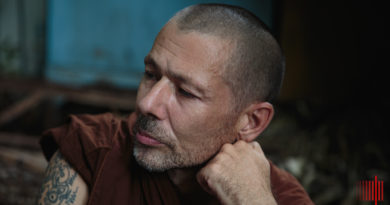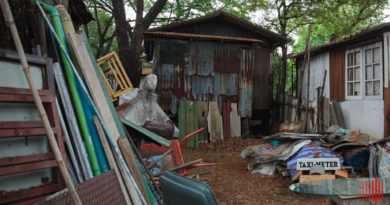Debunking Monking VI: Practise Faith
I might have somewhat shot myself in the foot in the previous article. My insistence that Buddhist ideas have to remain in a tight loop with a real problem and a practical solution to that problem then means that, having now reached that point, I perhaps may not be allowed to cite any more Dhamma in this final outing. So there I was feeling all pure and self-righteous about that, right up until the point where I sat down to start writing and realised that this would mean I had to come up with three thousands words all by myself. Suddenly a part of me pines for having plumped for one of those religions where you are allowed to say “Help me, Jesus” (or other saviour figure who at least had the decency to stick around and watch over his flock).
What’s this? A crisis of faith??
There’s an idea – how about a discussion of faith? I have presented a number of (hopefully) interesting snippets about Buddhism, and given examples of how aspects of those might be useful in certain situations. But am I therefore now “A Buddhist” and do I think that you should be one? Is there any value or meaning to such a declaration, and if so, then what would that entail? Alright, that sounds like it could be fruitful, or at least fill this gaping hole I have dug for myself. I think we’re underway.
Faith Herring
Hah! I am just going to slip one more Dhamma in, but my excuse is that it isn’t really a teaching as such – more a discussion of how to frame the other teachings, how to come at them. It is called Kalama Sutta (which by the way is pronounced CAR-la-ma, not ka-LAR-ma). Or rather it is an extract, because the Sutta is an account of what happened and what was said when Buddha visited a clan called the Kalamas, which is quite a few things. Right in the middle of that though, is a concise but resounding doctrine, which has been oft-quoted, but in my view can’t be ofted enough.
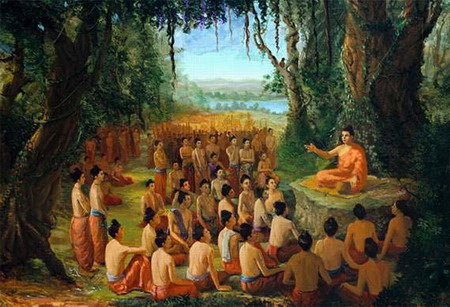
So, where the action has got to, is that one of the Kalamas says to Buddha that all of this stuff he has been talking about sounds fascinating and well and good, but there will be another wandering holy man along next week or thereabouts, who will say something different. They get a lot of them round those parts, it seems, and the tone of the questioner clearly sounds quite exasperated and had-it-up-to-here with the whole lot of them.
The words, as recorded, are polite but this man is no pushover, no suck-up. He is a sceptic who is refusing to go into ecstasies about the eloquence he has just been hearing – which contains some pretty good stuff, by the way, and others among the Kalamas have been an easier crowd – because it’s all just talk at this point. Perhaps second-guessing Buddha’s response, he mentions that all of them come prepared with a list of reasons why their Dhamma is true, and awesome, and gilt-edged certified, and the other guys are just a bunch of weasely smellybeard lentil-botherers. Instead of that, Buddha gives him this:
“Yes, Kalamas, it is proper that you have doubt, that you have perplexity, for a doubt has arisen in a matter which is doubtful. Now, look you Kalamas [note to Brits: it can be rewarding to read this in a Welsh accent] do not be led by reports, or tradition, or hearsay.
Be not led by the authority of religious texts,
nor by mere logic or inference,
nor by considering appearances,
nor by the delight in speculative opinions,
nor by seeming possibilities.
Nor by the idea: “This is our teacher”.
But, Kalamas, when you know for yourselves that certain things are unwholesome and wrong, then give them up. And when you know for yourselves that certain things are wholesome and good, then accept them and follow them.” [mic drop]
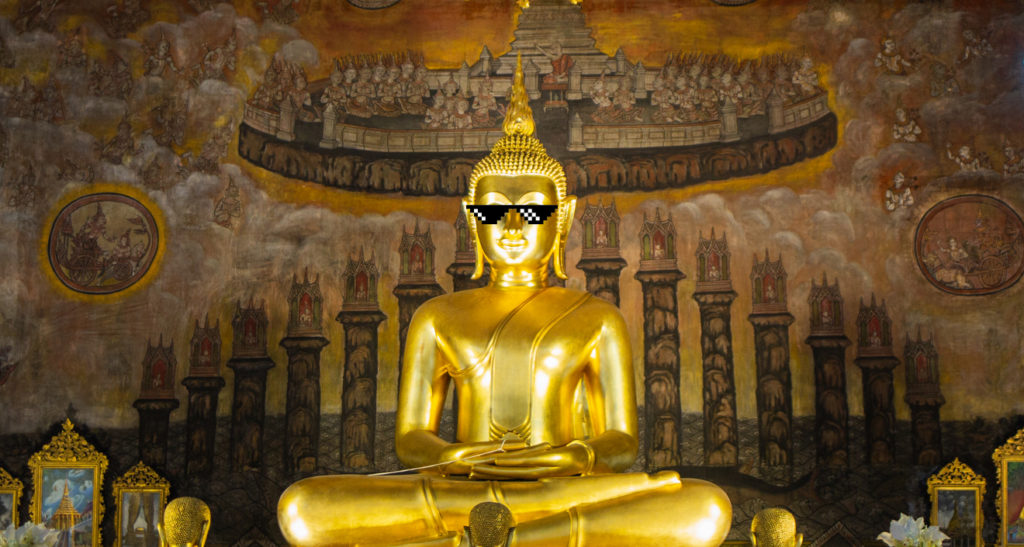
The first and last items on that list, particularly are extraordinary things for a religious teacher to say, although it’s all pretty weighty stuff. It seems that the Buddha himself was too humble to demand faith on the basis of such things, so clearly it would be terribly arrogant for anyone else to do so subsequently. There are those who might say that when Buddha said this, he was just being super-cool about it–like when you indulgently let a teenager “have their say” before telling them how things actually work–and that furthermore he was talking about other texts. The smellybeard ones, not his own, which were yet to be written. Now, however, we know the Truth, and have the Word, so we can – and should – save ourselves all that effort and unseemliness of thinking for ourselves and STOP ANSWERING BACK. Now we have Faith. Which is so much better.
No shortcut
I do encounter that attitude from time to time, and I suppose, in the spirit of Kalama Sutta, that I can’t just dismiss it out of hand. So let’s consider it (admittedly, somewhat in the manner of debating with the 16 year-old who has read one book and is now Stephen Hawkings). Let’s take a look at those texts that we now have, and try taking the Word at its word.
Well, we do find – I do anyway – that the spirit of Kalama Sutta is continually echoed throughout the Dhamma. No, I haven’t read the whole thing – it requires about 7ft of shelf-space in the currently popular Thai edition – I may need backup:
Faith, in the Dhamma, is never ever mentioned in isolation. There is not a single instance of Buddha saying that word and not immediately connecting it to other qualities. And he always does it in a highly specific way. I so much wish I could say that I noticed this, and I do sometimes drop it casually into conversations, almost as if I had, but for the record – I copped it from a talk by Ajahn Jayasaro. (He is an interesting fellow – English, but has been here for all of his adult life, which is around 4 decades now. Since the departure of the great Sumedho, he is probably the only resident western monk who is clearly eminent enough and also eloquent enough in Thai to be widely accepted as a teacher by the general populace. Check him out – YouTube, usual channels..)

What Jayasaro pointed out was that if you see faith being mentioned, it will always be on a list, and it will be at the top of it. At the bottom of the list you will invariably then find the quality of wisdom. That needs defining, since it is quite a vague term in English. To most people it probably means some special kind of cleverness that isn’t much talked about these days, and probably comes with a pointy wizard hat and a big beard (beards again).
Wisdom, or rather the Pali term “Pannya” is however, precisely defined by Buddha as that which is known because we have seen it, lived it, and know what usually happens. A less negotiable kind of knowledge. Cleverness is guessing how hot the potato is likely to be based on how hot the oven was and how long ago it came out. Wisdom is what makes you drop a hot potato before it burns you. Both are useful, but it’s wisdom you want in a tight corner. Anyway, whatever is on the list in-between faith and wisdom will be the things which tend to produce that wisdom.
That doesn’t sound as earth-shattering as I had hoped. Here’s more context: The Dhamma is full of lists. That’s a very noticeable characteristic of it. Buddha seemed to have a very orderly mind (I have a pet theory that there’s an almost Aspergers-ish quality to the way he speaks and presents his ideas) so things often come out that way. Sometimes he just wants to mention a number of things, so they have to be in some order or other, but more often what we’re actually seeing is a cycle – a process. So you start at the top, and when you reach the bottom, return to the top and repeat until the desired result is tangible.
To put it into practice
We can see that in the list I mentioned in the previous article, the Four Noble Truths. Buddha tells you to try to see life, and the suffering it contains in a particular way. “Wonderful”, you might reply, “I totally get that intellectually, and it does indeed all appear very ‘Noble’ as you say, but if I’m really honest my mind persists in sneakily viewing it in other ways, while I’m paying lip-service to that, and usually when it matters most – when I’m actually suffering. So meanwhile, back in the ‘real world’ – how about that, o wise one?”
Rather than repeating the first Truth in a louder and sterner voice – there’s that Faith thing again – Buddha breaks it down, taking you through the second truth encouraging you to look at how the suffering arises, and then the third which considers the conceptual possibility of taking power over that process, and then the fourth which brings it right down into the practical world. The fourth Truth breaks down all our physical and mental activities into categories that we can isolate and focus on nitty-gritty things that we can definitely adjust, even when looking at the big picture and trying to make that big conceptual shift seems too big, too overwhelming.
Then we can cycle back to the first Truth, and examine whether our view of suffering actually does seem to have changed at all, or whether any changes seem at all more robust when faced with actual instances of it. Rinse, and repeat until enlightened. Or at least until noble.
Let us return to that faith question. Looked at in that way, faith is then the result of wisdom. So why not just have wisdom? What is the importance of faith, if any? Well, if wisdom is the result of various practices, then faith is quite simply the willingness to give those practices a try. That’s why it sits at the top of the list. We don’t then need a lot of faith, it doesn’t have to be a Damascene conversion (maybe preferable if it isn’t actually – get any psychotherapist to read the story of St. Paul and see what they make of it.. yeah…). We just need enough to get started, and then we can see whether what we learn from that gives us a little bit more.
So am I a “Buddhist?” Well yes, and no, and then yes again, looked at in that light. Should you be? Well – what I am hoping these articles may have achieved is really just to give you some of that thing we have been calling “faith” (although some translators prefer “confidence” for the Pali word which is “Satta”). Just enough to give something a go, and see what happens. And that, as I understand it, is the only meaningful definition of a Buddhist – someone who is at this moment trying to work one of the practices or principles in a real context, as opposed to saluting any flags, or wearing any T-shirts.
If you already profess another faith (whatever you may mean by that word), then there is no problem with that. Buddha is not God, so Buddha does not argue with God. He presents human insight and knowledge, so you can think of him as like, a doctor or something. Just because you believe in God does not mean that you can’t also listen to what Dr. Fauci recommends – no, wait – bad example, but you know, something like that.
It works for me though…
Alright, that’s enough of that. Equally you don’t have to, of course not. As I have tried to emphasize, Buddhism is a response to a need, to a problem. That’s what it was for Buddha, and so it was for me. If you don’t feel the need, or if your current response to the problem seems to be working, then carry on – it’s results that count, it’s the management of suffering, the maintaining of integrity, making life workable, bearable, good.
That is what it has done for me. The things I have been telling you about, up to the point where I left them, produced some of that faith, that Satta, just enough to stick around a little longer, try a little more, and look a little deeper. That kept happening on a rolling basis, until the point where, somehow, I found myself ordaining as a monk.Then somehow I found myself having been a monk for a year-and-a-half. I was still in my early thirties then, and good as it was in the monastery, the pull of the world was strong. I wanted to try all that stuff again, and see how well I and my fancy new ideas held up. And – they kinda did.
There are no magic bullets. Just because you’re a fancy Buddhist now doesn’t mean you take everything in your stride, of course. It doesn’t mean that suddenly you’re no longer a chimpanzee stuffed with snakes who’s developing a nasty cough (and won’t wear a mask). Kilesa don’t just go away because we have named them (although just that really does help, actually). All the wisdom in Buddhism is practice-dependent, and it’s a lot like physical exercise, in my experience in that you have to actually do the pushups and keep doing them, and stick to the diet, or all that stuff you learned from your glossy health magazines is no use at all. Possibly counter-productive even, since you’ll pull a muscle if you try to lift something heavy but forget that you haven’t been to the gym in a while.
So, yes – my subsequent decade back in the world, and then back in the music business, had ups and downs. But never again as far down as I had been, and I always knew there was a way out of the downs, which is essential to taking that first step when you have to, and keeps you going when you’re trapped in them for the time being by forces beyond your immediate control.
When I say “downs” I don’t mean that I ever went back to using drugs. That did hold up, and under some testing conditions – I have been dog-tired in the middle of the night on endless recording sessions with people chopping out lines of cocaine right next to me on the mixing desk, and turned down kind offers to join in. I don’t mean to boast – just to let to-whom-it-may-concern know that it can be done.
But now I am a monk again, since three years and some ago. What happened there? Well it is a bit late to start on that story now, but this time was different, it wasn’t an emergency bolt-for-cover like the first time, although it was of course a response to suffering, because isn’t everything? One way or another. There IS suffering. Sorry to break it to you..
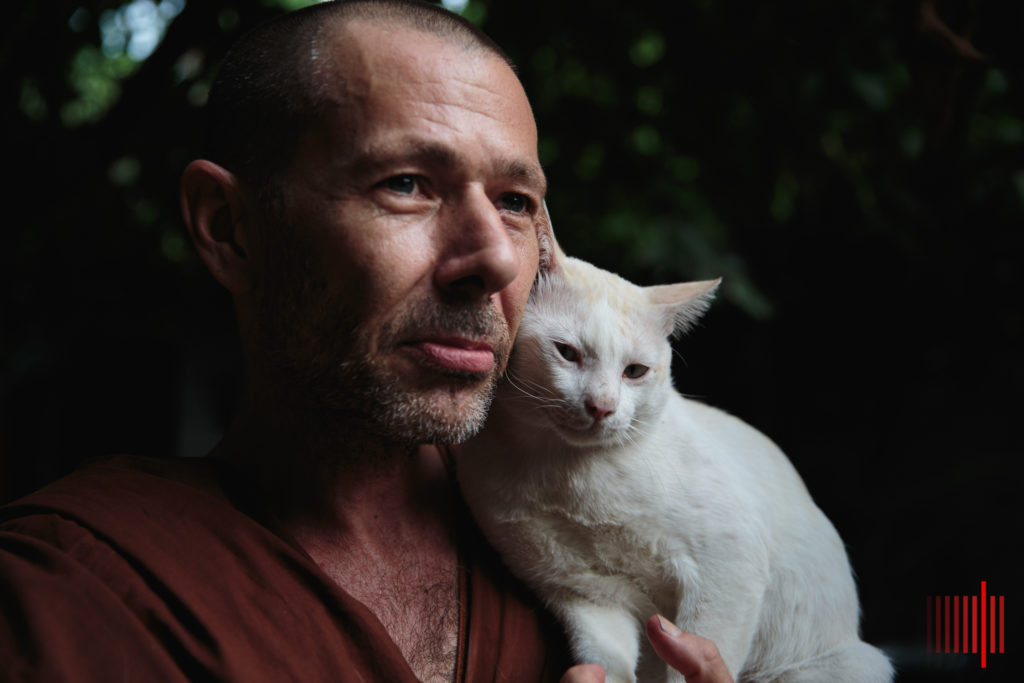
A number of people have been absolutely splendid in helping and encouraging me to get this series written. Principally my learned editor, Didtita Simcharoen, and my evil atheist muse (when Gollum isn’t around) Krittin Kitsahawong. Invaluable expert Dhamma-checking from Phra Jeremy Dtechapanyu and, representing the Mahayana crew, Ani Maria Chotso. Blessed are the pedants – they allow the rest of us peasants be sloppy as hell and take all the credit. Various conversations with fellow travellers have given rise to thoughts or blatant steals that have found their way in here, too many to name, but for this last piece thank you particularly to Yom Eh Paweena.
If anyone finds themselves struggling with drug or alcohol dependency and doesn’t know where to turn, then please do consider getting in touch with Thamkrabok, here: https://wat-thamkrabok.org/contact/
It’s free of charge – it doesn’t take a lot of Satta, just a little heroism.
Endless and ongoing gratitude to my teachers. Quite a few, but principally – Luang Por Charoen Parnjand, Phra Hans Ulrich Kaempfer, Luang Por Vichien Kittiwanno, Ajahn Vichit Akkajitto, Luang Na Tan, and most recently Ajahn Fox.
But first and last, Venerable Thich Quang Duc.

About the author
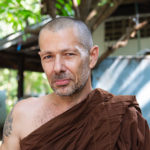
Phra Peter Suparo
History geek. Enjoys sitting around doing as little as possible. Semi-retired bon viveur. Eternal student. Elf-friend. Theoretically in favour of humanity.

